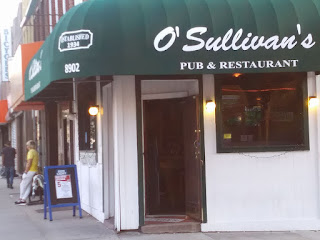The Rifleman’s Son
He was the program’s last surviving cast member.
Crawdfor, who was 75 years old, had been diagnosed with Alzheimer’s disease in 2019.
He later contracted COVID-19 and pneumonia, but recovered, according to his wife, before succumbing to the Alzheimer’s.
Running from 1958-1963, The Rifleman starred Chuck Connors as Lucas McCain, a rancher and widower raising his son in the fictitious town of North Folk, in the New Mexico Territory.
This was the first network television series to portray a single parent raising a child.
The program was created by Arnold Laven and developed by Sam Peckinpah, who would go on to direct such films as Ride the High Country, The Wild Bunch and Straw Dogs.
I vaguely remember the show during the end of its original run and in reruns later on when I was in grammar school, but, outside of Chuck Connors’ rapid-fire rifle opening, the program didn’t make much of an impression.
The Rifleman came back into my life last year when I stared watching the reruns on the Me TV cable channel, which has resurrected a slew of old time TV shows.
This time around I was impressed.
First of all, the show featured an incredible list of guest stars including Sammy Davis Jr., Lee Van Cleef, Adam West, Lon Chaney Jr., Warren Oats, James Coburn, Martin Landau and Robert Culp.
John Anderson, a brilliant character, holds the record for the most appearances, turning up in 11 episodes, including a show where he played Lucas McCain's father-in-law.
Mark of McCain
Joseph H. Lewis, who made the film noir classic Gun Crazy, directed 51 episodes of the series.
Lewis had a fabulous visual style that featured powerful closeups and expressive lighting that helped to lift the material he was directing.
His work didn’t overpower the stories; it helped tell the stories.
This was long before film schools, back when you learned filmmaking by making films.
And this style doesn’t require huge budgets or computerized special effects. Just talent.
The heart of the show, of course, was the relationship between Lucas and Mark. Most episodes ended with a lesson about important issues like racism, honesty and fairness.
I am a shameless weeper and I must confess that there are a number of episodes that had me sobbing.
“The Vision”, where a critically ill Mark has a surreal encounter with his late mother’s spirit was a real killer. I also used up a lot of tissues on “The Wyoming Story,” where Lucas has to leave the ranch for a while to do undercover work for the government. The reunion of father and son at the end of the two-part story was beautiful.
The chemistry between the two actors was fabulous.
“I remember the first time I saw him,” Chuck Connors said in an interview. “I was sitting there with the producer and we were interviewing kids to play Mark. We must have interviewed 20 or 30, then Johnny came in and before we even talked to him I said, ‘That's him, that's The Rifleman's son.’"
The actors remained friend after the show ended its run and Crawford gave a eulogy at Connors’ memorial.
After the show ended its run, Johnny Crawford continued acting in TV and movies and in 1992 he led the JCO (Johnny Crawford Orchestra), a vintage dance band.
I never had the pleasure of meeting Johnny Crawford, but after seeing him on TV for so long, I feel like I lost a friend.
Rest in peace.





Comments
You now have me very curious to go back and watch episodes. Yup, me too, I'm a shameless weeper. In fact, I watched a documentary last night and wept all through it. But it felt so therapeutic. I think it's good to weep. It's like a cleansing.
Thanks so much for sharing this beautiful memorial, buddy. Very touching.
Have an awesome week!
Thank you so much, Beatrice! The bond between Lucas and Mark really made that show!
Hey, buddy, how's it going?
American television used to be dominated by westerns, so it can be hard to keep them straight in your mind. But I think you'll see how "The Rifleman" differs from so many other shows.
And you're so right about crying being therapeutic. I heard a man say on the radio the other day that "crying is taking your soul to the laundromat."
Sounds good to me!
Take care!
Yes, indeed, "The Rifleman" was a quality show, like so many programs back then.
Of course they had had their drawbacks regarding diversity and attitudes toward women.
And the shows were hampered somewhat by the need to provide a happy ending (usually) and tell their stories in one episode--unlike today's TV shows which are so interconnected you can't afford to miss an episode.
Take care!